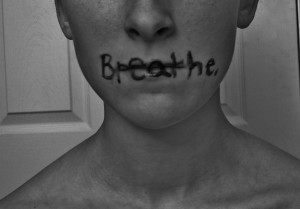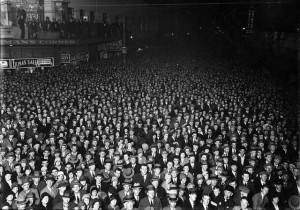 I’m a huge procrastinator. Whether it’s studying for an exam or writing a new blog post, I have mastered the art of putting things off and feeling okay about it. But sometimes, on the rare occasion I can trick my brain into productivity mode, I can tackle my to-do list head on and win.
I’m a huge procrastinator. Whether it’s studying for an exam or writing a new blog post, I have mastered the art of putting things off and feeling okay about it. But sometimes, on the rare occasion I can trick my brain into productivity mode, I can tackle my to-do list head on and win.
What makes me procrastinate? I’m a pretty impulsive person. I lack self-discipline (for the most part). I’m lazy, I have a short attention span, and I really like creeping Facebook. I also love sleeping in and I get easily addicted to TV shows. I want to cook new recipes, and there are a million video games I want to try (but not beat…that takes dedication). I want to learn kung fu, judo, Brazilian jiu jitsu, and how to wield a katana. I want to lift weights more often, I want to run farther (and faster), I want to take up yoga and Tai Chi. I want to write a horror novel, or maybe just a few short stories, or wait, maybe I want to write a fantasy epic. I want to speak Russian, Japanese, Spanish, and Latin. I want to read more Dean Koontz novels, watch more comedies, obsess over Buffy the Vampire Slayer more often. …I think you get the picture.
What makes me NOT procrastinate? You can have the short answer or the long answer. The short answer is passion. When I feel passionate about something, even fleetingly, I can fend off procrastination for the time being. But of course, that isn’t real advice, is it?
The long answer is a different story. As much as passion is a huge motivator, it isn’t without flaws. Even the most passionate people working the most exciting jobs or studying the most fascinating topics procrastinate. So we’re back at square one…how do you stop procrastinating? Well, I want to share a few tips that I find helpful in the ongoing battle against procrastination.
- Disconnect yourself. I bet you could probably guess I’d start with a lecture on limiting your internet browsing. Well, yes, that is my first tip. I’m sure you’ve heard it a million times, and you’ve tried it a hundred million times, but something keeps opening up a new Facebook tab or telling you “five more minutes on Reddit, and I swear I’ll get back to work!” Do yourself a favor and just disconnect from the internet. Turn off your cellphone. Get in the zone. You have a limited attentional load, meaning you can only attend to a couple things at a time. If you try to pay attention to too many things, you’ll never get anything done.
- Remove the allure of decisions. If you make studying or catching up on readings a decision, then chances are you will find something more immediately gratifying to do. Try to remove these choices from your day: set a certain time on a certain day where you will complete a certain task. Do your sociology readings every Tuesday morning with a warm mug of green tea. Prepare your meeting notes Sunday evenings as you sip on a chai latte. Write a blog post every Monday afternoon while you enjoy a new herbal tea. (Doing things while drinking tea always sounds more pleasant, don’t you think?)
- Give yourself time off. As I’ve mentioned in a previous post, working for days on end without giving yourself a break is no good. I find that when I reach my maximum work capacity too early in the week, I spend the rest of the week putting things off. Instead, give yourself some time off every day where you can set aside your worries and just relax. That way, you’re less likely to run out of steam, and procrastination will be held further at bay.
- Dedicate a room to productivity. If you can find a particular spot where you do nothing but productive work (say, a particular seat at a library or a fun cafe down the street), your brain will eventually start to associate the environment with productivity. That way, you have one less thing (your environment) to distract you from doing your work.
- Give up perfectionism. For a lot people, the biggest obstacle preventing them from starting a task is the need for everything to be perfect. Dive into your work and just get it done. You’ll never reach perfection. (I will dedicate a post to perfectionism later, so I’ll have a lot more to say about that.)
- Balance your anxiety. Maybe you’ve heard of the Yerkes-Dodson law. Maybe you haven’t. If it’s the latter, then I will tell you there is an empirical relationship between arousal and performance that follows a bell curve. If you are not aroused at all (i.e. if you’re bored), you won’t perform well (you’ll probably procrastinate). If you’re too aroused (i.e. if you’re anxious about the task), you won’t perform well either (you’ll still procrastinate). In order to efficiently complete a task, you must be interested enough to start it (feel the pressure), but not too worried about the task to avoid it (oh-my-god-I-have-a-forty-page-paper-due-in-six-hours). Start your task early enough that you can complete it with a little time to spare, but not too early that you aren’t worrying about the due date.
- Work with little tasks, not big projects. Instead of saying “I HAVE to finish this paper today”, try “I want to get my research done today – tomorrow I will start writing.” Large tasks seem insurmountable, and will probably encourage you to procrastinate. Small tasks are much easier to deal with. You probably won’t have time to read 600 pages in one night, so don’t plan for it. If you’re a constant procrastinator like me, it takes baby steps to get out of this “student syndrome.” (The student syndrome refers to the phenomenon where students don’t bother applying themselves until the night before an official deadline. We all do it.) Try breaking down the 600 pages into smaller chunks with a little bit more time devotion. Why not 200 pages for three nights prior to the exam? That’s a step in the right direction…
- Remember why you’re doing what you’re doing. If all else fails, try to restructure your internal dialogue. Instead of dreading the work set out in front of you, remember why you’ve chosen to do that work. Whether it’s the joy of getting a good grade, the excitement of working towards a degree you’ve always wanted, or the allure of a new internship, there’s a reason you’ve decided to put yourself to work. Keep that in mind when you try to convince yourself that you need to spend an hour on Stumbleupon.
You can read and read and read about procrastination and still fail to overcome it. We use our cognitive biases to justify it. With billions of potential distractions pleading us to put off our work, it’s a wonder anyone gets anything done. But I know you can battle your procrastination and win. I do it (sometimes). That means you can too.
How do you battle procrastination? As always, I’d love to hear your thoughts. Leave me a comment :).








